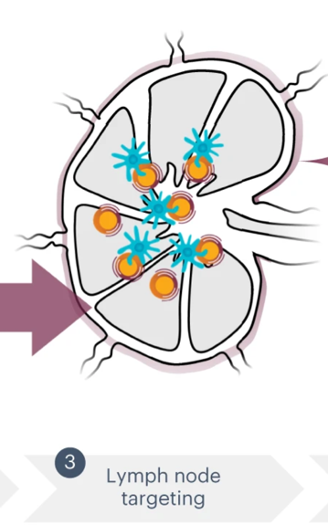News

A new shot at beating tough cancers!
Locoregional therapies are cancer treatments that aim to directly target the tumour and surrounding tissues and are commonly used in colorectal cancer patients whose cancer has spread to the liver. Unfortunately, relapse is common following these treatments, and subsequent therapies often cannot cure the returning cancer. Recent research has shown that incorporating immunotherapies, which employ the immune system to fight cancer, with these tumour-targeting treatments may be a promising option for patients with liver metastasis. The success of these immunotherapies relies on the lymph nodes, which are vital for coordinating and sustaining the anti-cancer response.
Vaccines are a well-established way to prevent infections, but a new study has shown promising results that they could also extend the lives of colorectal cancer patients following locoregional therapies. A key problem with traditional vaccines is that they contain tend to have poor distribution to the lymph nodes. To give them the best chance of working as a cancer therapy, the researchers in this study created a vaccine that can ‘hitchhike’ on lipids in the blood to better reach the lymph nodes.
Their vaccine targets KRAS, a protein commonly mutated in cancer that is key to tumour’s ability to survive and grow. In the researchers’ first-in-human phase 1 clinical trial, this lymph-node targeting KRAS vaccine was given to five colorectal cancer patients who had residual disease following locoregional treatment. Following vaccination and over the course of monitoring, 60% of these patients had no detectable tumour DNA in their blood.
While this is an early-stage trial with a limited number of patients, the results suggest that lymph node-targeting vaccines could be a promising avenue for treating relapsing colorectal cancer which warrants further study. A phase 2 clinical trial is now underway to further explore these results.